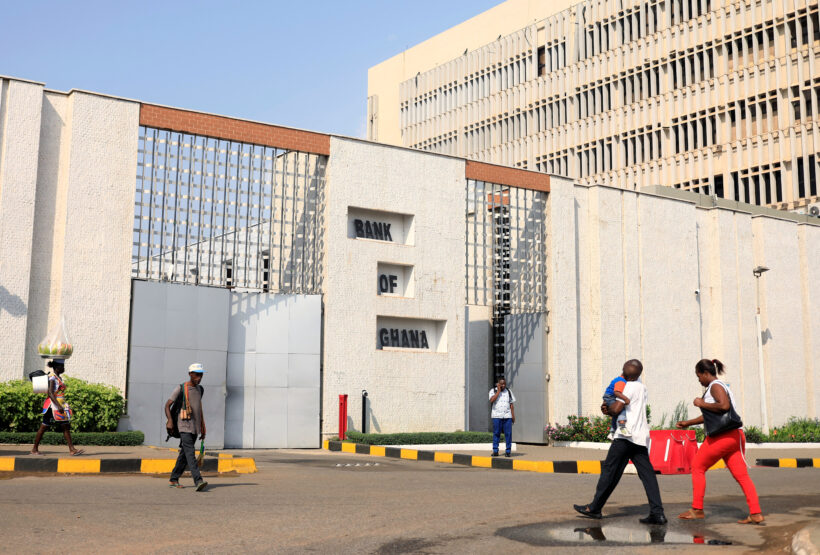
ACCRA, May 24 (Reuters) – Ghana has agreed a memorandum of understanding (MoU) with its bilateral creditors, including China and France, to restructure $5.4 billion of debt, two government sources said on Friday, one-and-a-half years after the West African country defaulted.
The MoU paves the way for the executive board of the International Monetary Fund (IMF) to approve the disbursement of $360 million under Ghana’s $3 billion, three-year bailout programme, which is expected next month.
Once signed, the agreement would form the basis of a deal to restructure loans its official creditors, including China and France under the Paris Club of creditor, agreed in January.
Ghana’s Finance Minister Mohammed Amin Adam is due to hold a press briefing on Friday morning.
Ghana was the second country in Africa to default on most of its $30 billion external debt during the pandemic as the exporter of gold, cocoa and oil battled to emerge from its worst economic crisis in a generation. The first country was Zambia.
Ghana’s economy has since started to recover, with inflation easing from 54.1% in December 2022 to 25% in April 2024 and 2023 growth of 2.9% exceeding the IMF’s 2.3%.
Together with Zambia and Ethiopia, the world’s second-biggest cocoa producer is reworking its debt under the G20 Common Framework, a process set up during the pandemic to speed up debt overhauls.
However, progress has been slow, holding back the countries’ economic recoveries and access to much needed overseas loans, aid and investment.
The IMF declared Ghana’s debt unsustainable in its Debt Sustainability Analysis (DSA) and is aiming for the country to restore itself to a “moderate” risk of debt distress by 2028.
This would bring Ghana’s public debt-to-GDP ratio from 88.1% at the end of 2022 to 55% by 2028.
Terms with official creditors will be of interest to Ghana bondholders, who are next in line for a deal, as they will seek an equitable solution under the comparability of treatment principle, a key element of the Common Framework for debt restructuring.
Ghana did in April find common ground with some of its biggest bondholders, including Western asset managers and hedge funds as well as regional African banks. But the IMF said that the interim deal was outside the DSA threshold and needed to be tweaked.
The regional African banks had also rejected parts of the deal, including an option to retain the original value of the bonds with a longer maturity and lower coupon.
The government said it was working to satisfy the IMF’s requirements.
The country concluded a domestic debt restructuring in October, during which 206 billion Ghanaian cedi ($17.5 billion) was swapped for longer-dated, lower-interest debt, resulting in 61 billion Ghanaian cedi of savings, then Finance Minister Ken Ofori-Atta said.
(Reporting by Maxwell Akalaare Adombila; Writing by Sofia Christensen, Karin Strohecker and Portia Crowe; Editing by Alison Williams and Subhranshu Sahu)

